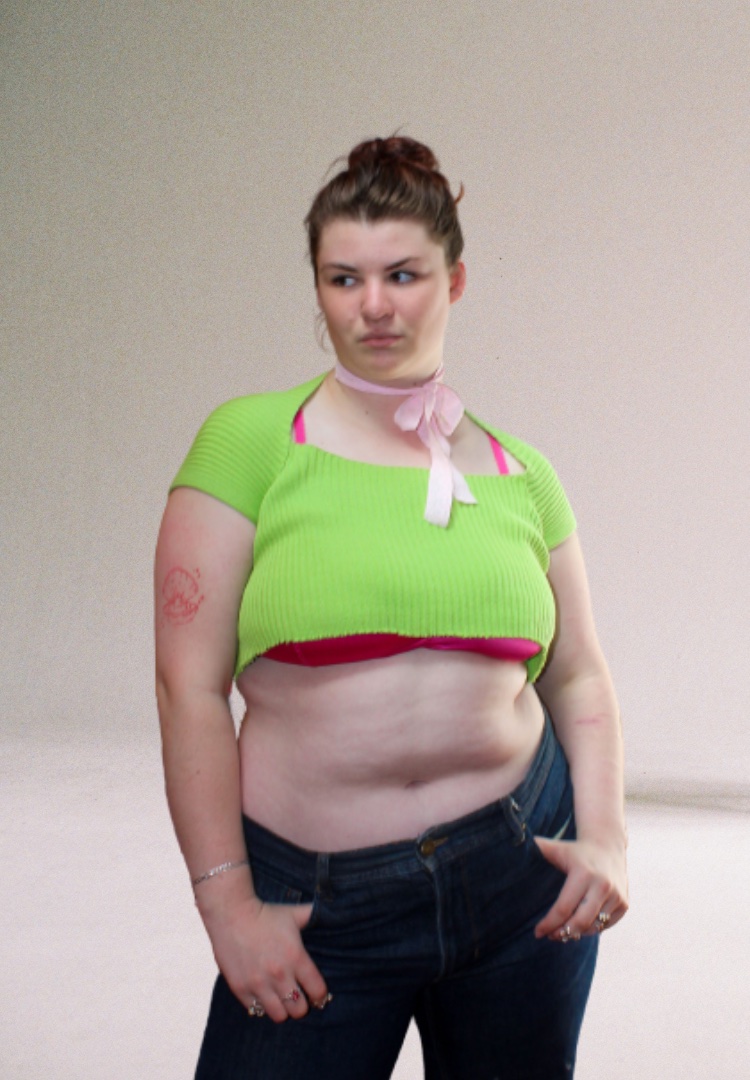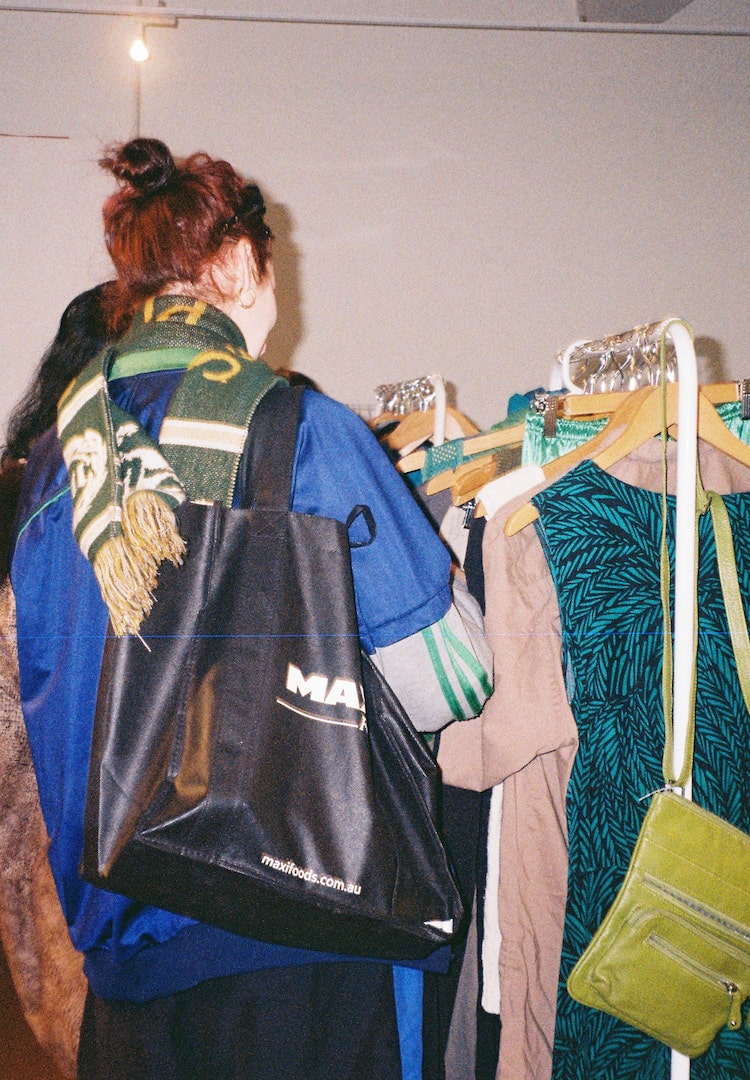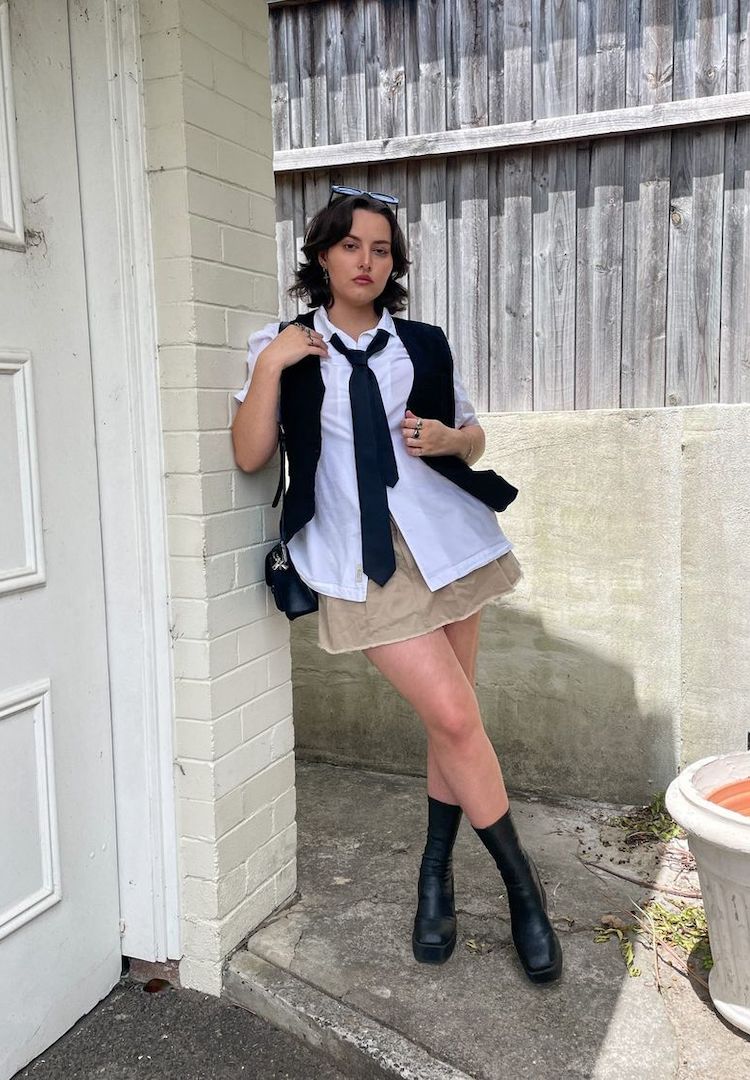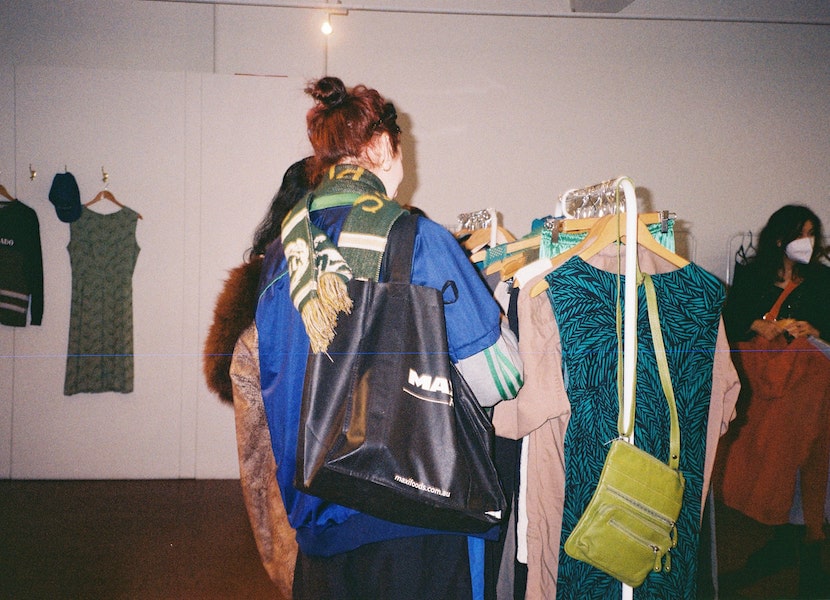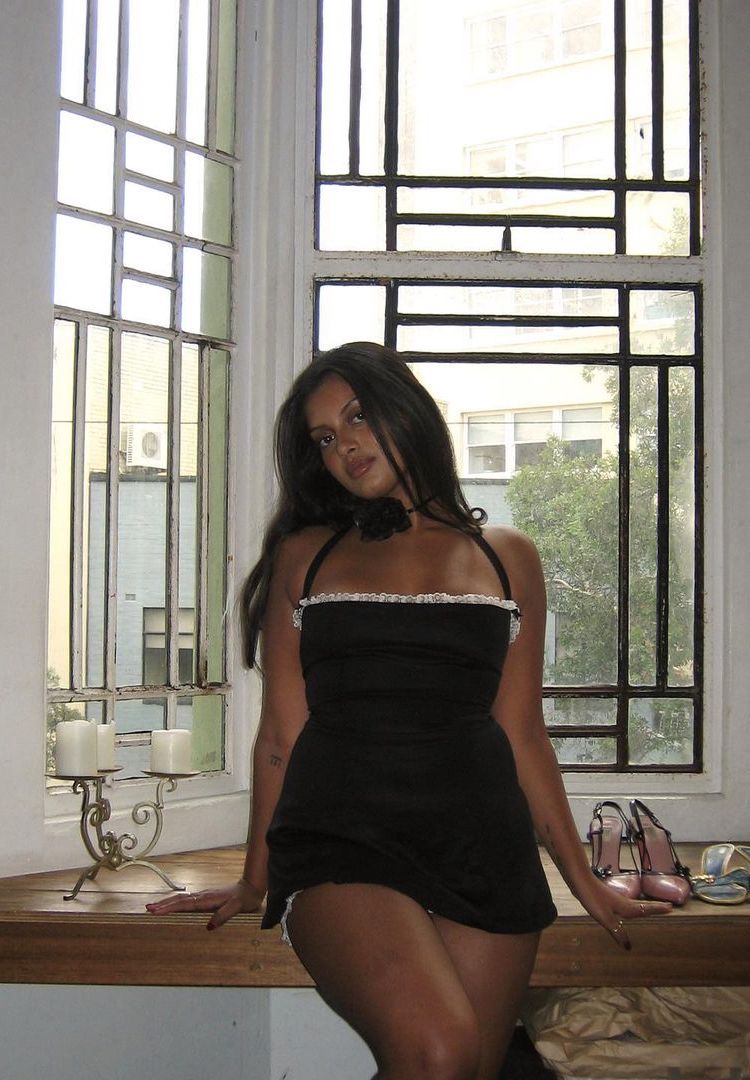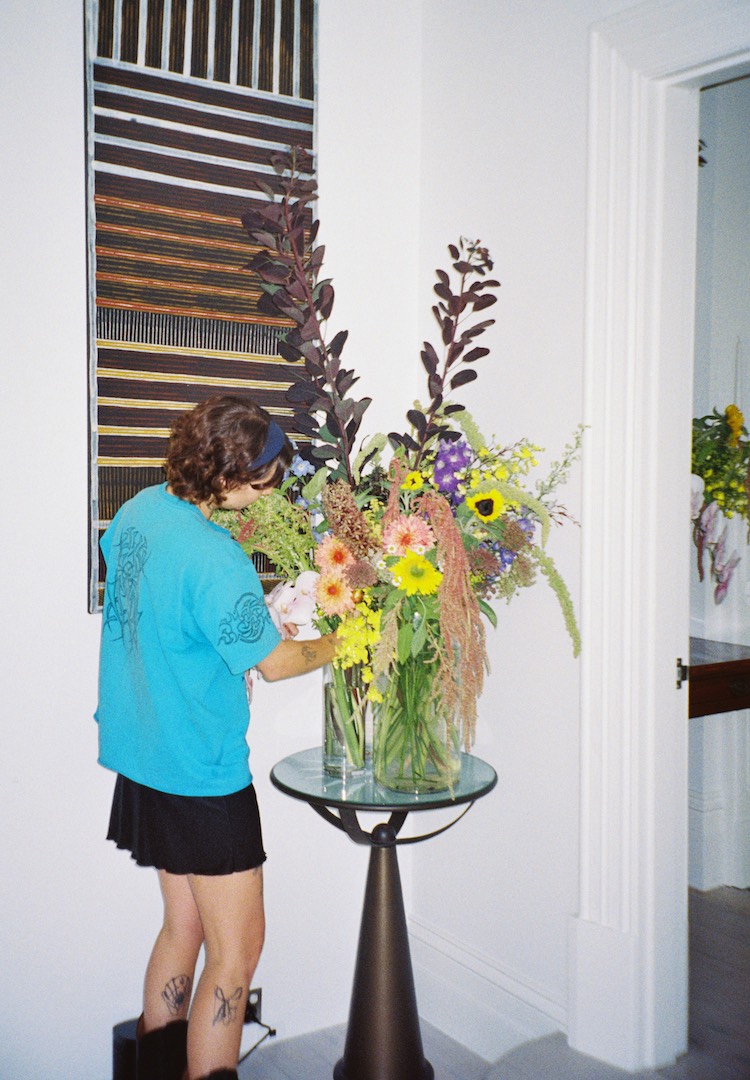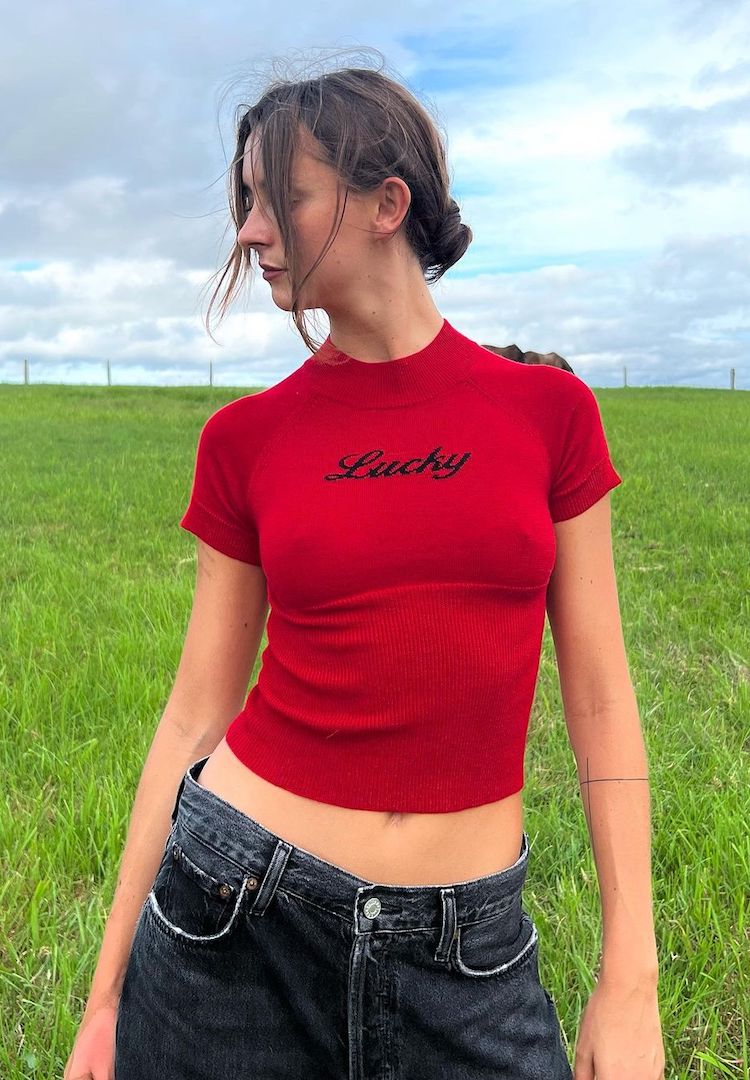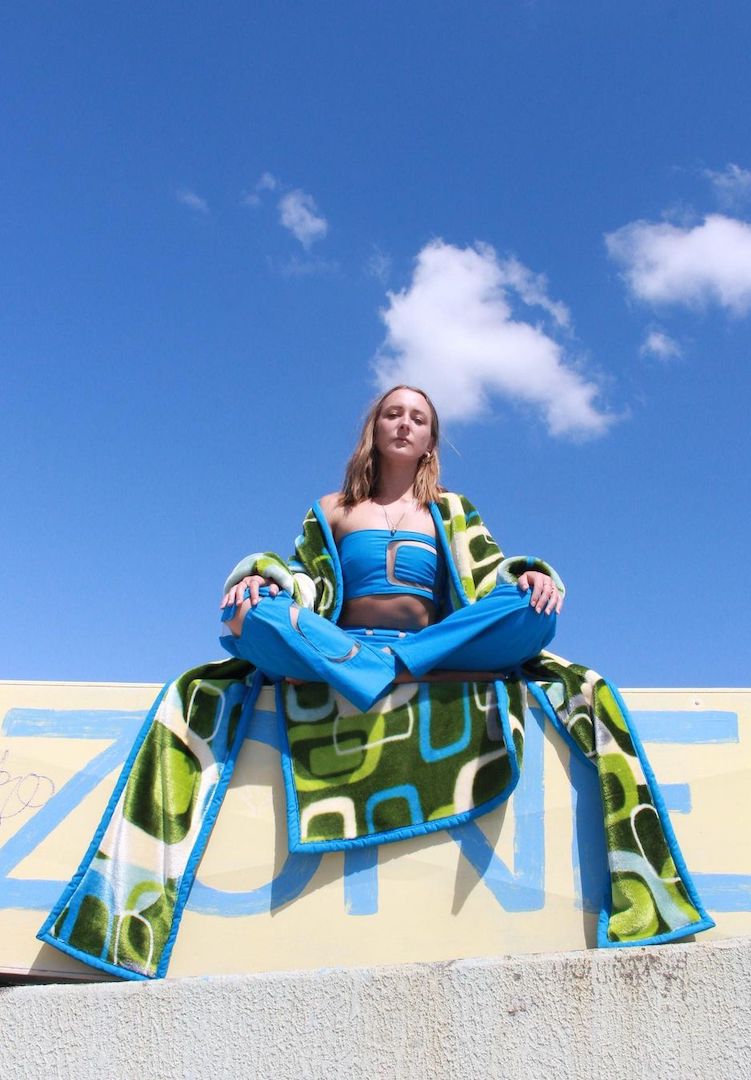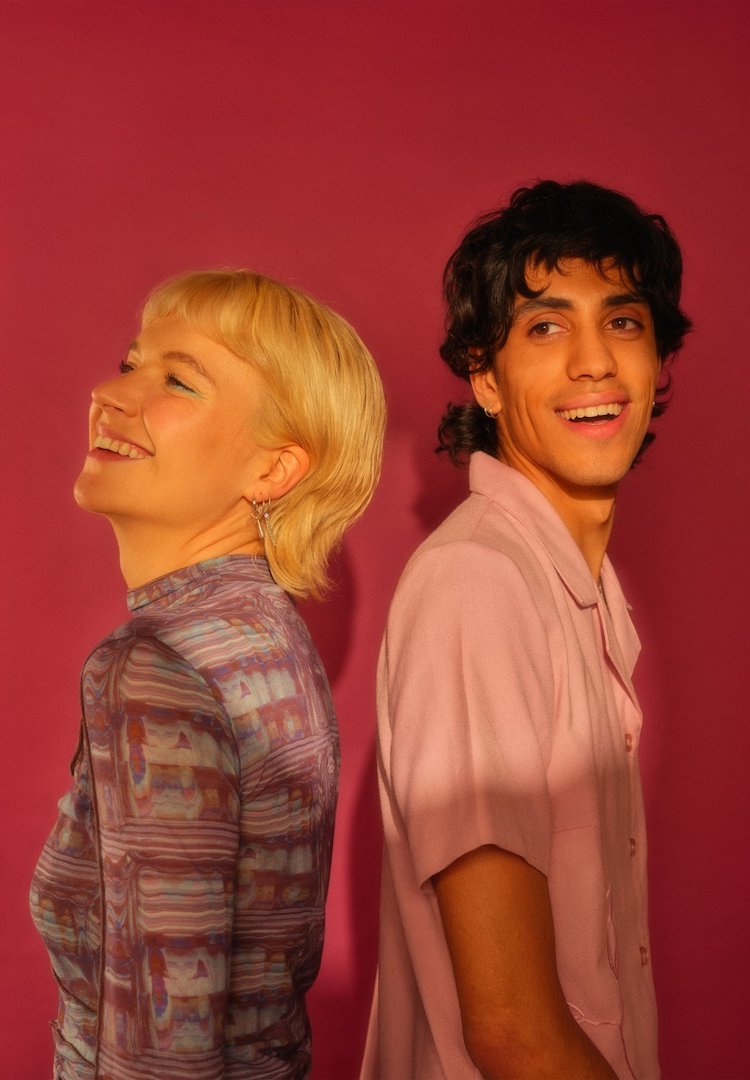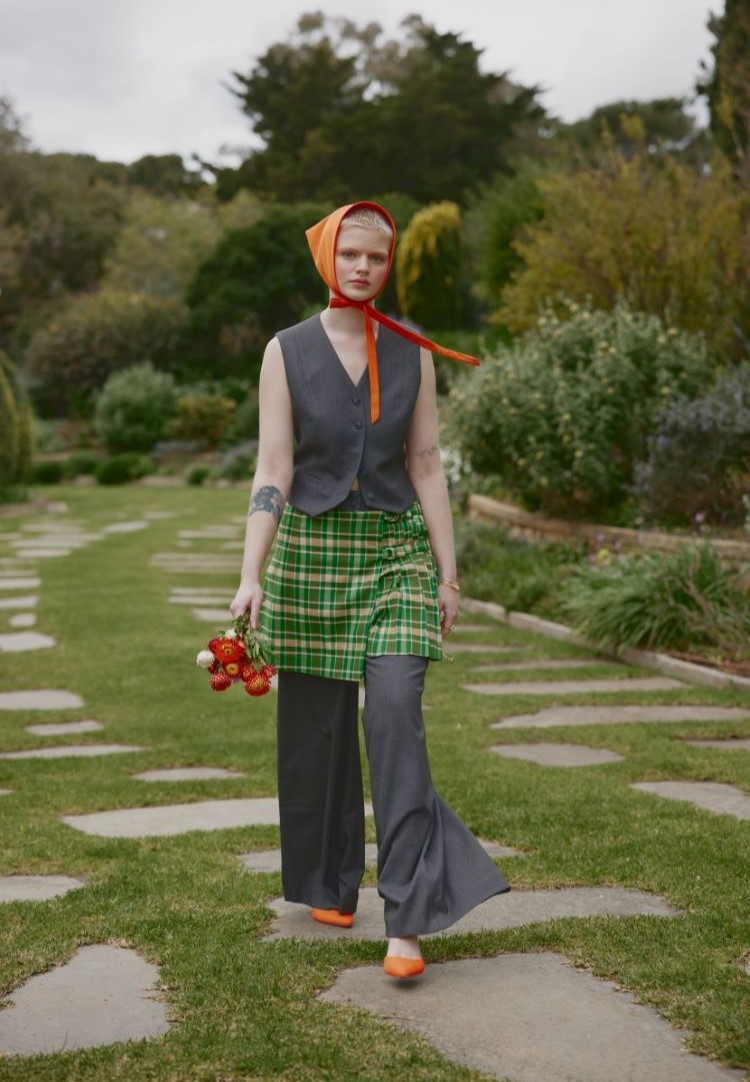What happens inside this Melbourne-based clothing swap for fashion people
PHOTOGRAPHY BY ANGIE DI FABRIZIO
WORDS BY IZZY WIGHT
“One person’s trash is another person’s treasure.”
When it comes to matters of the wardrobe, Australian creative and fashion graduate Katie Di Fabrizio has always been a kind of hunter-gatherer. Reviving pieces from garage sales, hand-me-down piles and scrap fabric heaps, Katie’s outfits consistently tell an interesting story. And it was this concept of curated clothing rehabilitation that inspired her latest sustainable fashion project, Trashie.
“It all stemmed from the concept that op shops are being overshopped for profit and the resale market is harming those who are fiscally reliant on secondhand shopping,” Katie explains. Held in Melbourne’s Nicholas Builiding, Trashie is a bi-monthly, community-driven clothing swap that encourages attendees to reconsider their wardrobes.
For more style inspiration, head to our Fashion section.
Each elligible clothing item brought to the swap is awarded a number of tokens, which shoppers can then cash in for a new piece (or several). “I’ve always had this idea of a clothing library and a more ethical way to address the issues of people not wanting to outfit repeat or overshop at charity shops”, Katie says. Below, she tells Fashion Journal about how Trashie was brought to life.
Tell us about you. What’s your creative background?
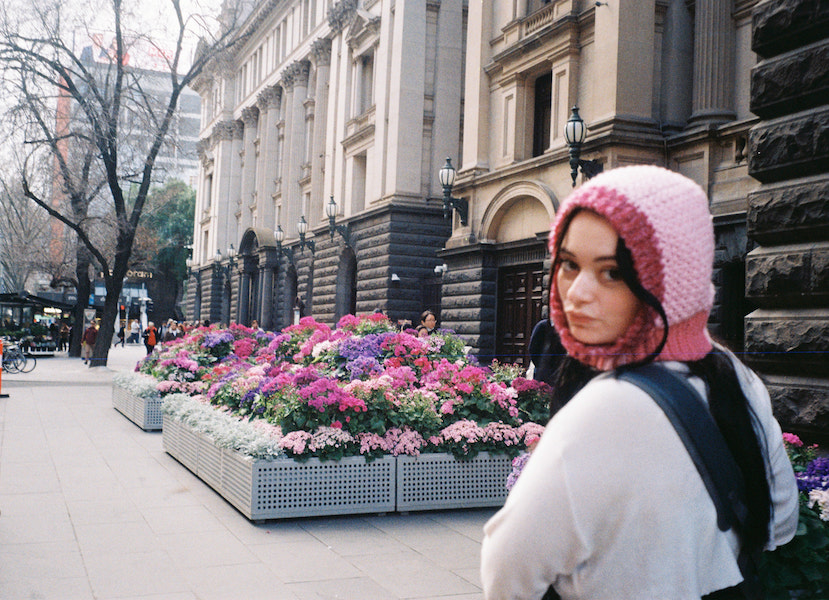
My creative background is a bit of a mixed bag. I graduated from Fashion Merchandising at RMIT. Throughout, I was trying to figure out where I sat within the fashion landscape. I did photography, attempted to launch a creative agency, dabbled in music events, tried my hand at 3D animation and have designed a few websites in my time. I guess I was doing that classique Gen Z thing of trying to ‘find my purpose’. I always funded these passions by working in hospitality, because as my mother always said, “You need a backup career”.
How did the project get started? Talk us through the process and the challenges.
Trashie came to me in a time of existential crisis, filled with questions like ‘What’s my magnum opus?’ and ‘How can I change the world?’ So naturally, I started big and then went small. I’ve always had this idea of a clothing library and a more ethical way to address the issues of people not wanting to outfit repeat or overshop at charity shops.
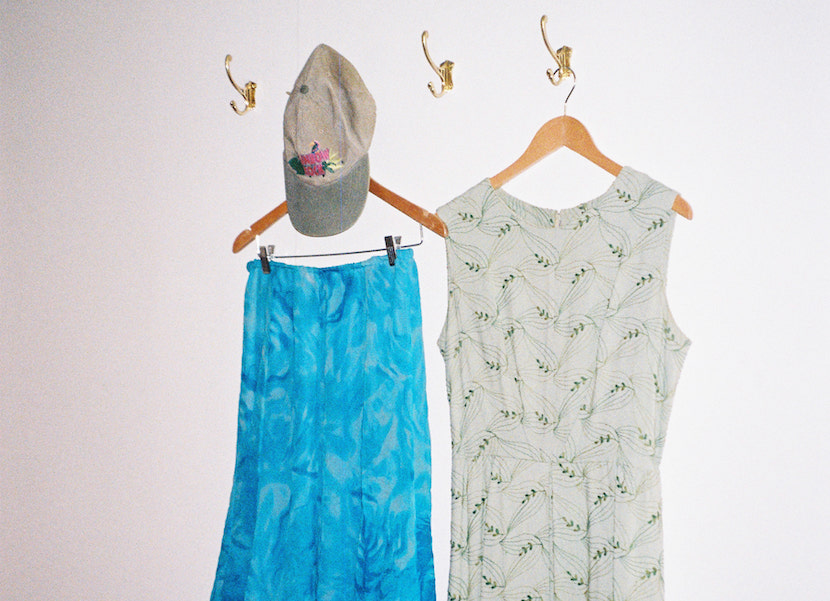
The project took a while to get off its feet, as the idea itself is quite intangible until you actually come to the event. It was a lot of workshopping and my beautiful sister helped me immensely along the way, being a soundboard that also inspired me.
Where did the name come from?
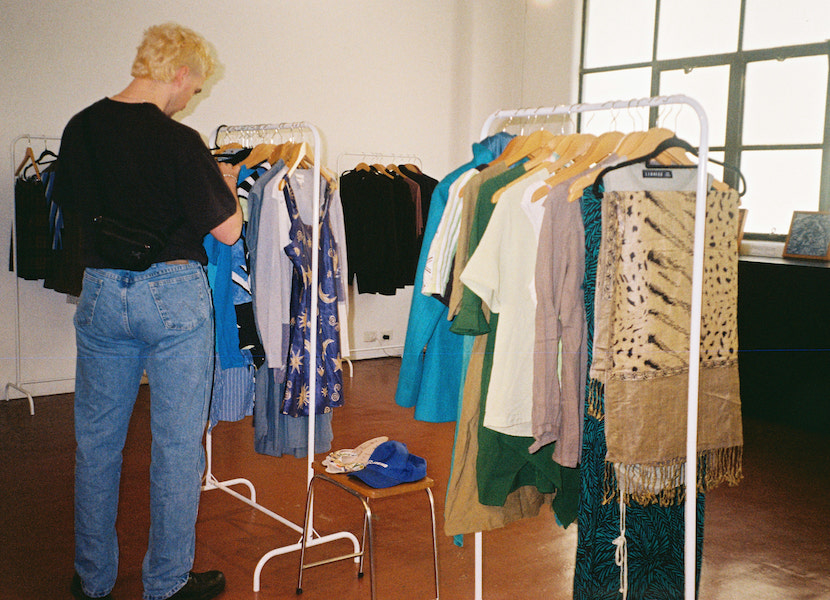
One person’s trash is another person’s treasure.
How would you describe Trashie to someone who’s never been before?
A very cheap new wardrobe.
Talk us through the Trashie swap process.
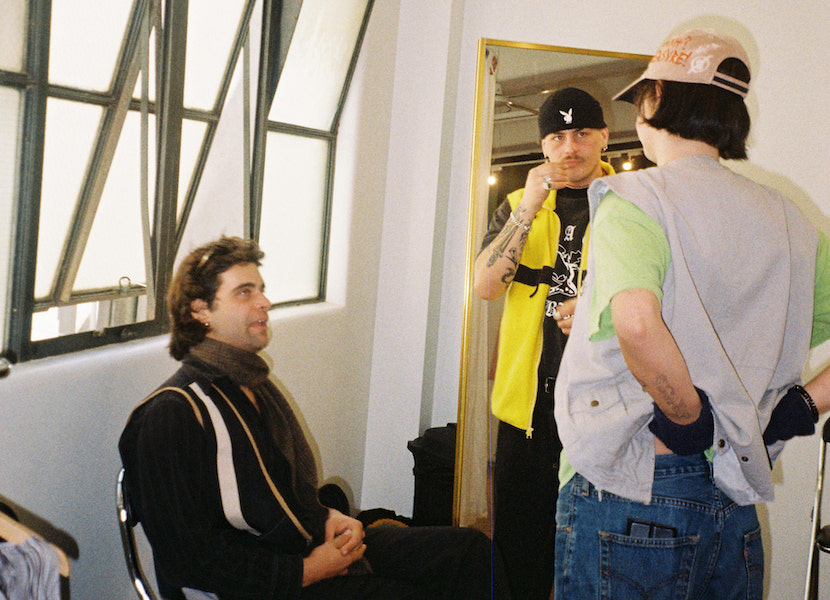
Essentially, I encourage people to look at their wardrobes and dissect the thought of ‘I love this, but I don’t want to donate it’. After that, you purchase a ticket and gather your items for the day of the swap. The exchange is a three-hour event, so you can arrive at any time. We have a surplus of clothing so no matter what time you arrive, there’s a floor full of great pieces. Get you items appraised at the door to ensure they meet the requirements. Collect your garment tokens, and then browse and shop!
Through its circular fashion model, Trashie is encouraging people to swap instead of buying new. What inspired this concept?
The concept of Trashie is one I’m very passionate about. It all stemmed from the concept that op shops are being overshopped for profit and the resale market is harming those who are fiscally reliant on secondhand shopping. I think we’ve all commented on the increase of pricing at op shops… charity shops like Sacred Heart [have had] to introduce their own online shop to combat op shop scavengers from reselling their product and making a large profit. I think buying first-hand is also a privelege when it comes to ethical consumption.
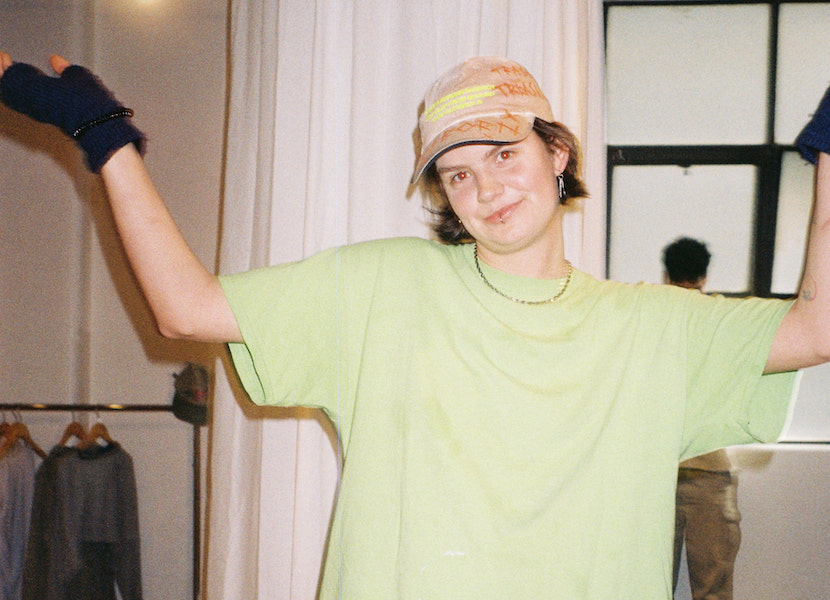
So where is the middle ground? Trashie. I felt like there needed to be a community space where instead of overconsumption, we could share and also get something in return. I think it’s important to analyse where the fashion industry is going and make changes where we can. We don’t have to reinvent the wheel, we just need to question our own buying habits and think of interesting ways to keep being able to express ourselves with our clothing. We can have it all, people!
What about the Australian/NZ fashion industry needs to change?
Classism and sustainability.
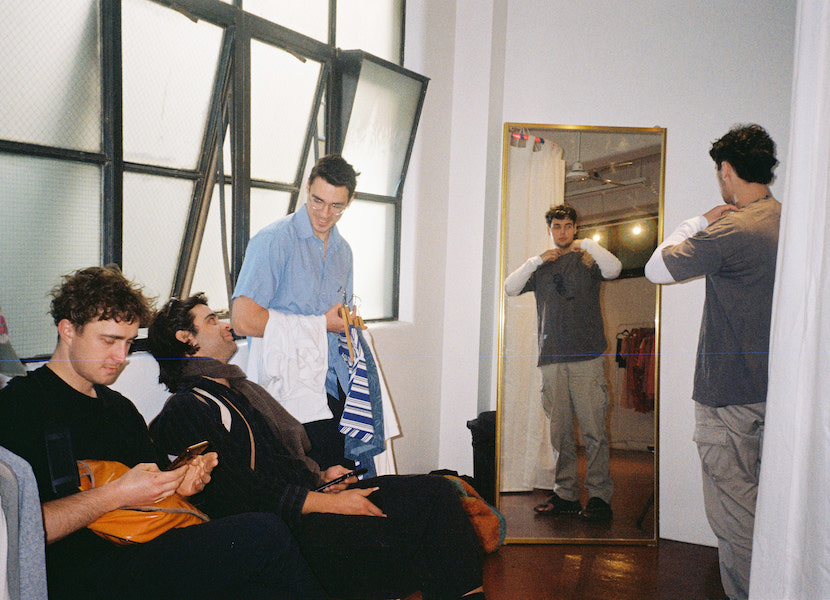
Dream collaborators?
Spankie Jackzon and Michelle Obama.
For more info on Trashie and to find details on the next event, head here.

